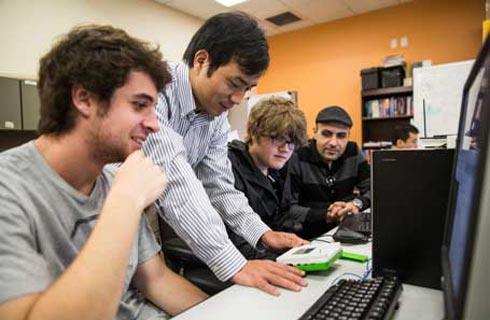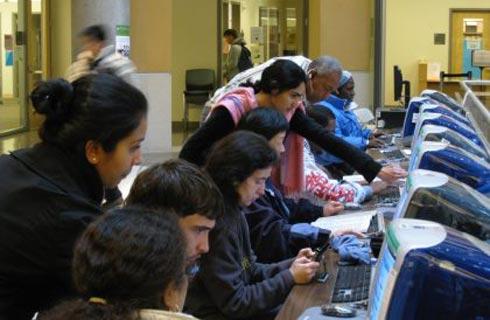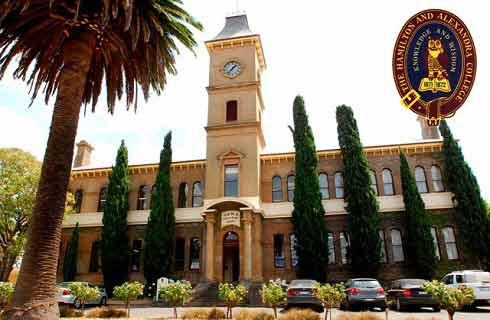- IDP China>
- 课程库>
- 工程与技术>
- 工程>
- 生物医学工程>
- Doctor of Philosophy in Biomedical Engineering - Cardiovascular Engineering
生物医学工程哲学博士-心脏电生理学和生物物理学
Doctor of Philosophy in Biomedical Engineering - Cardiovascular Engineering

学历文凭
Ph.D.

专业院系
Department of Bioengineering

开学时间

课程时长

课程学费

国际学生入学条件
IDP—雅思考试联合主办方

雅思考试总分
7.5
- 雅思总分:7.5
- 托福网考总分:90
- 托福笔试总分:160
- 其他语言考试:DUOLINGO : 125 or higher
CRICOS代码:
申请截止日期: 请与IDP联系 以获取详细信息。
课程简介
Cardiovascular engineering is a discipline which covers a wide range of topics related to function of the cardiovascular system, mechanisms of cardiovascular diseases, and their treatment. Cardiovascular engineering includes basic science and translational to clinical use and spans the spectrum from the molecular scale to the complete body. Research in cardiovascular engineering addresses some of the most basic questions of how cells, organs, and the body function. The research also seeks to develop diagnostic approaches, interventions, and biomedical devices that have profound impact on treatment of patients with cardiac diseases. Despite dramatic improvements in clinical diagnosis and care, cardiovascular diseases remain the leading causes of death in developed countries. Research in cardiovascular engineering makes use of the most advanced technologies in areas such as molecular and cellular biology, bioinstrumentation, imaging across many modalities, signal and image processing, machine learning, mathematical simulation and modeling, and all aspects of computer technology. As a result of this diversity of biomedical and technical research, students with graduate training in cardiovascular engineering receive a broad education in physiology, cardiac diseases and biomedical technology. The graduates will be extremely well equipped for careers in academia and industry. The program makes use of background courses from several departments as well as specialized training in the discipline through both courses and extensive laboratory experiences. Because of the outstanding research emphasis on cardiovascular engineering at Utah, there also exist rich opportunities for interaction with a wide range of experts in the field as well as involvement in interdisciplinary projects within teams of related researchers and students.
相关申请
 预科
预科 奖学金
奖学金 实习机会
实习机会 在校学习
在校学习 跨境学习
跨境学习 校园授课-线上开始
校园授课-线上开始 在线/远程学习
在线/远程学习
开学时间&学费
学费信息仅供参考,请与IDP联系以获取详细信息
| 开学时间 | 时长 | 学费 | 地点 |
|---|
学校排名

世界排名201
数据源:
泰晤士高等教育世界大学排名
关于犹他大学

犹他大学位于美国犹他州的盐湖城市,是一所综合性公立大学,由耶稣基督后期圣徒教会信徒建立。学校截止2012年约有30,000学生及4,000多名教职员工。大学共分11部门,获得好评的学科则有商科、传播学、美术、计算机科学、工程、采矿、以及化学等自然科学。犹他大学为美国太平洋十二大联盟会 Pacific-12 Conference(原Pac-10)成员。该联盟目前由由美西十二所著名大学组成,成员包括加州大学伯克利UCB,南加州大学USC,加州大学洛杉矶UCLA,斯坦福大学,亚利桑那大学UA,科罗拉多大学,华盛顿大学UW-Seattle,俄勒冈大学OU等。犹他大学具有完整的学士、 硕士及博士学位,拥有73个系和94个研究学科。在校学生人数约为26000人,分别来自全美50个州和全世界109个国家。犹他大学近八成学生都获得校内兼职工作,因离盐湖城Downtown较近,且有轻轨系统直通校内,学生的校外兼职机会也颇多。学习成绩优异的学生有机会进入学校的荣誉学院Honor College,获得更多的学术研究机会。犹他大学始建于1850年,是美国著名的公立大学之一。该校位于美国犹他州盐湖城,校园依山傍水、风景别致,距离周围的几个国家公园仅三个小时左右的车程,是美国国家公园环境的国家级大学。据抽样调查,1999年盐湖城被评为全美最佳居住城市之一。
本校相关课程

Master of Science in Special Education (with Licensure)
学历文凭
Masters Degree
开学日期
课程费用总额


统计硕士(数学)
学历文凭
Masters Degree
开学日期
课程费用总额


生物统计学统计学硕士
学历文凭
Masters Degree
开学日期
课程费用总额


Master of Social Work (MSW)
学历文凭
Masters Degree
开学日期
课程费用总额


国际事务和全球企业理学硕士
学历文凭
Masters Degree
开学日期
课程费用总额


Master of Arts in Political Science
学历文凭
Masters Degree
开学日期
课程费用总额

其他相关课程

生理学和生物物理学文学硕士
 霍华德大学
霍华德大学学历文凭
Masters Degree
开学日期
课程费用总额


生物学理学学士-分子生物学
 阿拉巴马大学伯明翰分校 - INTO USA
阿拉巴马大学伯明翰分校 - INTO USA学历文凭
Bachelor Degree
开学日期
课程费用总额


Doctor of Philosophy in Biochemistry of Health and Disease - Molecular Machines in Biology and Disease
 德雷塞尔大学
德雷塞尔大学泰晤士高等教育世界大学排名:423
学历文凭
Ph.D.
开学日期
课程费用总额


分子流行病学理学硕士
 南加州大学
南加州大学泰晤士高等教育世界大学排名:74
学历文凭
Masters Degree
开学日期
课程费用总额


生物化学与分子医学理学硕士
 纽约州立大学石溪分校
纽约州立大学石溪分校学历文凭
Masters Degree
开学日期
课程费用总额


Bachelor of Science in Computational Chemistry and Biochemistry
 伊利诺伊理工学院
伊利诺伊理工学院泰晤士高等教育世界大学排名:310
学历文凭
Bachelor Degree
开学日期
课程费用总额










